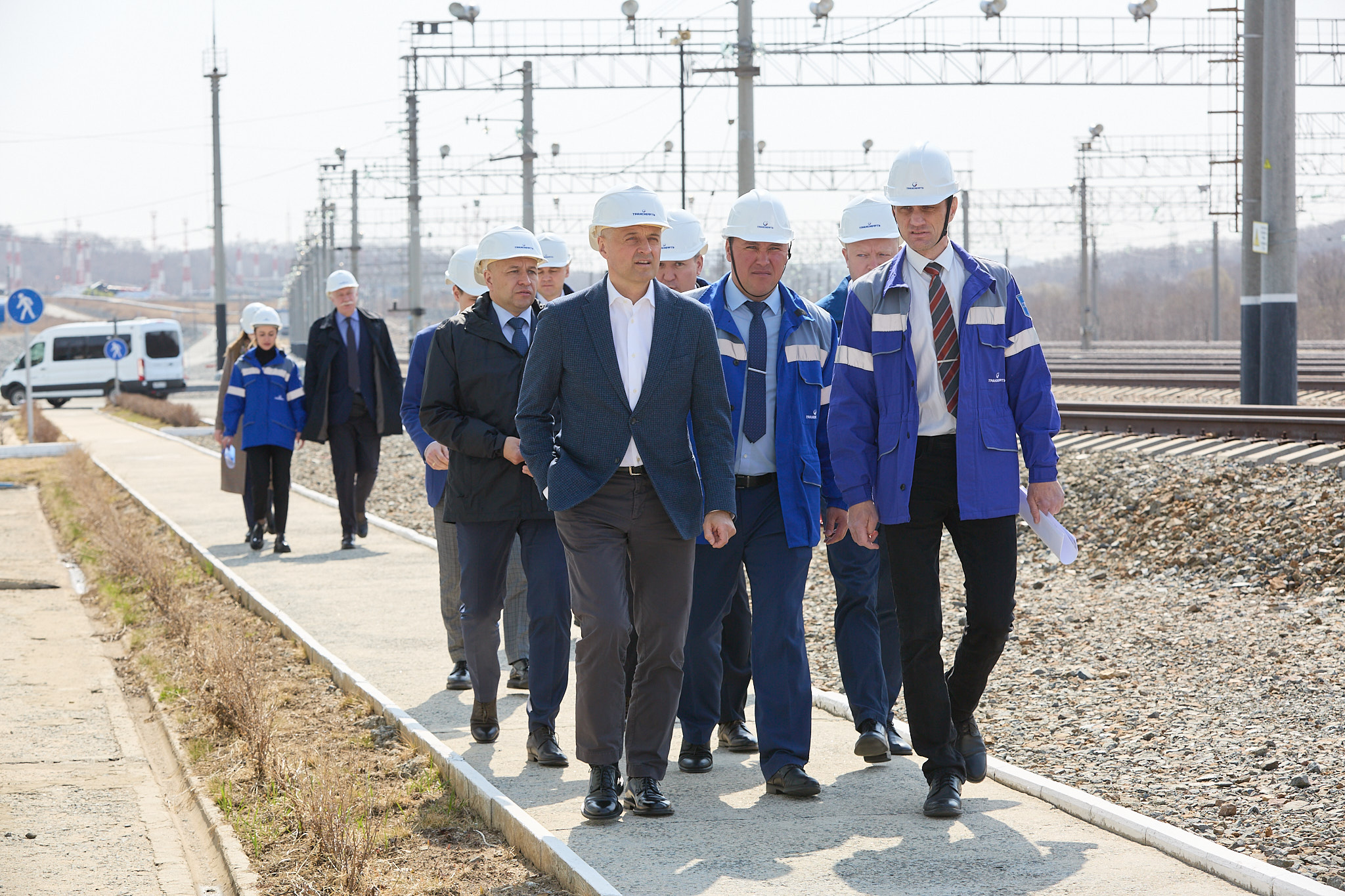
Railway station Gruzovaya in the Primorsky Territory, an asset of Transneft Far East LLC, is ready to accept trains carrying oil bound for further transportation to the port Kozmino and export shipment, says the company.
Sergey Andronov, Vice-President of Transneft PJSC, made a working visit to oil port Kozmino and railway station Gruzovaya. According to him, all the works planned to ensure the operation of the railway junction have been completed in time. “The Gruzovaya station is ready to accept cargo. We are waiting for the decision of oil companies on organization of extra volumes of low-sulphur oil involving railway logistics from the fields of West Siberia to Kozmino port,” he said.
According to Sergey Andronov, oil delivered to the Gruzovaya station from the Meget station in the Irkutsk Region will then be transported to Kozmino port for further export shipments.
The Gruzovaya station was used for oil transportation between 2009 and 2014 while ESPO-2 was under construction. Its operation was suspended in 2015 and now resumed in view of the high demand for the eastward oil export routes.
Oil port Kozmino is the terminus of the Eastern Siberia – Pacific Ocean pipeline system (ESPO). The dedicated export oil terminal was built for transshipment of crude oil delivered by pipeline and railway to sea-going oil tankers. The key importers as of March 2022: China — 56.2%, Japan — 17.8%, S. Korea — 9.2%, USA — 4.7%, Thailand — 2.7%, Malaysia — 2.5%, Philippines — 2.5%, Singapore — 2.4%, New Zealand — 1.2%, Taiwan — 0.4%, Indonesia — 0.3%, Peru — 0.1%.
Transneft is the largest pipeline company in the world holding 68,000 km of trunk pipelines. The company’s control stock (78%) which is 100% of voting shares are controlled by the state. Preferred shares are held by private owners.



